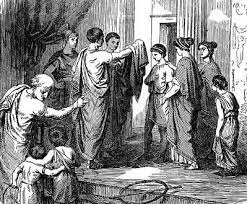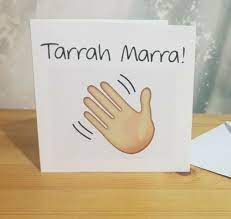Yesterday was the launch of five new initiatives fostering understanding and enjoyment of the ancient Greek and Roman worlds in the North-East of England. It was drizzling on and off, and the lawn outside the Durham Uni lecture hall on Palace Green lived up to its name, shining emerald in the intermittent sunshine. I made a large celebratory chocolate cake.
The Head of the Classics & Ancient History
Department, Prof.
Jennifer Ingleheart, kicked off proceedings with an eloquent manifesto contrasting
the richness of classical culture in our region with its educational and
material poverty (our event was free, as was lunch, and plenty of local people
came).
I offered some context by talking about the
extraordinary cluster of brilliant creative individuals produced by Grangefield
Grammar School, at other times known as Stockton Secondary School: Ridley
Scott, director of Gladiator; Pat Barker, author of Silence of the Girls
and Women of Troy, and Barry Unsworth, a miner’s son, whose Songs
of the Kings is a searing account of how Iphigenia was literally ‘spun’ to
death by a New Labour PR man named Odysseus.
Initiative 1: Durham University School of Education has
just introduced the first PGCE
training in Classics for decades. The Northerners who want to teach
Classics have been forced for far too long to up sticks and go to Cambridge or
King’s College London. My amazing fellow-schemer Dr Arlene Holmes-Henderson has designed the
teaching materials. Schools in the North-East wanting to teach Classics will
finally have a locally-trained supply of teachers on tap.
Initiative 2: The campaign to make Classical
Civilisation and Ancient History in State Education, Advocating Classics Education, which
Arlene and I founded in 2017, transfers its HQ to Durham University from King’s
College London. I remain available to talk at schools and sixth-form colleges,
either in person or virtually; please just email via my website. And I’ve just
completed translations of all the plays on the Greek Theatre A-Level module for
use as the standard set texts. More on this soon.
Initiative 3: Dr Edmund Thomas and I,
with the help of champion cricketer PhD student Rory McInnes-Gibbons, are convening a year-long seminar series and a
conference on the history of Classics in the North-East. Papers will discuss
radical printing houses, translations of ancient zoological and botanical
treatises, historical pageants, classicizing architecture, Hadrian’s Wall,
workers’ education and much, much more. There will be a book, a website and
building of a network to participate in making a film to explore the rich classical
tradition in this part of the world.
Initiative 4: We launched the new Hadrian’s Wall Branch of the Classical Association, of which I am president, Dr Cora-Beth Fraser is Secretary/Editor and Prof. Justine Wolfenden is Chair. We are determined to make this an inclusive organization: ethnic minority, disabled, unwaged and neuro-diverse members are particularly welcome. Our first big public event will be a family-friendly celebration of the Saturnalia on Saturday 10 December. Parents will have to serve children. Costumes will be worn. Delicious Roman dishes will be available.
Initiative 5: Our department’s bid to become the best Classics
research centre in the land has got off to a flying start this term with my
securing of two large research grants. One, funded by Leverhulme, studies
Aristotle’s presence outside academic circles since the Restoration (see e.g.
this anti-feminist cartoon); the other studies his fascinating and hopelessly
under-researched writing styles. It is funded by UKRI. Four new post-doctoral
researchers will be arriving in Durham to turn it into the most important
northern outpost of the great philosopher’s Athenian Lyceum.
There is a great deal to do, but I’m bursting with
enthusiasm for every single initiative-research, outreach, public engagement, widening access, boosting state education, local history, sheer good fun. I have the best collaborators in the
world. And the Geordie for collaborator, my friends, is the deeply unclassical,
Scandinavian-derived and resonant noun marra.








